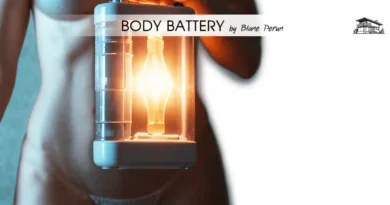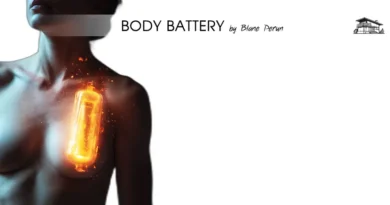Recharge Your Body Battery Through Design
Energizing the Mind and Soul: Mastering Mental and Emotional Rejuvenation
In the hustle and bustle of our daily lives, the concept of recharging our body’s mental and emotional batteries has never been more crucial. Just as our smartphones need to be plugged in to regain power, our minds and bodies also require regular rejuvenation. But how do we recharge the body battery mentally and emotionally? This question is more than just a curiosity; it’s a vital aspect of maintaining our overall health and well-being in today’s fast-paced world.

Understanding Our Inner Power Sources
The Science of Stress and Relaxation
Our body’s response to stress, scientifically known as the “fight or flight” response, is governed by the autonomic nervous system, particularly the sympathetic and parasympathetic nervous systems. When we’re stressed, the sympathetic nervous system kicks in, releasing adrenaline and cortisol, preparing our body to face a perceived threat. However, constant activation of this system without proper relaxation can lead to chronic stress, which is detrimental to our health. Engaging the parasympathetic nervous system through relaxation techniques like deep breathing, meditation, and yoga can help counteract these effects, effectively recharging our mental and emotional batteries.
Harnessing the Power of Mindfulness
Mindfulness, a practice rooted in Buddhist traditions and backed by scientific research, involves maintaining a moment-by-moment awareness of our thoughts, feelings, bodily sensations, and surrounding environment. Mindfulness meditation has been shown to reduce stress, improve attention, and contribute to a greater sense of well-being. Incorporating mindfulness practices into our daily routine can serve as a powerful tool in recharging our mental and emotional states.
Cultivating Emotional Resilience
Emotional Intelligence: The Key to Self-Regulation
Emotional Intelligence (EI) refers to our ability to recognize, understand, and manage our own emotions, as well as to recognize and influence the emotions of others. High EI is associated with better stress management, higher job performance, and improved mental health. Developing EI through practices like self-reflection, empathy cultivation, and active listening can significantly contribute to our emotional recharge.
The Art of Positive Psychology
Positive psychology, a field that examines what makes life most worth living, emphasizes the cultivation of positive emotions, engagement, relationships, meaning, and achievement. Techniques derived from positive psychology, such as gratitude journaling and strength-based interventions, can enhance our sense of well-being and recharge our emotional batteries, promoting a more fulfilled and resilient life.
Integrating Physical Wellness for Mental Clarity
The Role of Nutrition in Mental Health
The adage “you are what you eat” holds profound truth when it comes to mental and emotional health. Nutritional psychiatry is an emerging field exploring the link between diet and mental health. Consuming a balanced diet rich in omega-3 fatty acids, antioxidants, and vitamins can support brain function and mood regulation, playing a significant role in recharging our mental state.
Exercise: A Natural Mood Booster
Regular physical activity is not only beneficial for physical health but also for mental and emotional well-being. Exercise stimulates the release of endorphins, often referred to as the body’s natural antidepressants, which can lift mood and reduce stress. Incorporating regular exercise into our routine can be a highly effective strategy for recharging our mental and emotional batteries.
In conclusion, learning how to recharge the body battery mentally and emotionally is essential for sustaining our overall health and well-being. By understanding our inner power sources, cultivating emotional resilience, and integrating physical wellness, we can effectively navigate the challenges of modern life with renewed energy and vitality.

FAQ on Recharging Mentally and Emotionally
What does it mean to recharge the body battery mentally and emotionally? Recharging mentally and emotionally involves engaging in practices and activities that restore our mental energy, reduce stress, and improve our emotional well-being. This can include techniques like mindfulness, exercise, and ensuring a balanced diet, among others, to help us regain our inner balance and reduce the effects of stress.
How does mindfulness contribute to recharging the body battery? Mindfulness involves being fully present and engaged in the moment, which can significantly reduce stress and anxiety by preventing overwhelming thoughts about the past or future. Regular mindfulness practice, such as meditation or mindful breathing, can calm the mind and body, aiding in mental and emotional rejuvenation.
Can diet really affect our mental and emotional states? Yes, diet plays a crucial role in our mental and emotional health. Certain nutrients, like omega-3 fatty acids found in fish and antioxidants in fruits and vegetables, can support brain function and mood regulation. A balanced diet can contribute to a more stable emotional state and improved mental clarity.
What is emotional intelligence, and how does it help in emotional recharging? Emotional intelligence involves understanding and managing our own emotions, as well as recognizing and influencing others’ emotions. By developing EI, we can better navigate emotional challenges, reduce stress, and maintain emotional balance, which is essential for our mental and emotional recharge.
Why is exercise considered a natural mood booster? Exercise stimulates the release of endorphins, which are chemicals in the brain that act as natural painkillers and mood elevators. Regular physical activity can reduce stress, alleviate anxiety, and improve overall mood, making it a key component in recharging our mental and emotional batteries.





